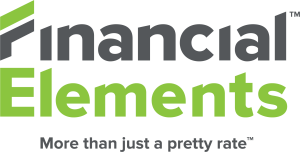We make the process of refinancing a simpler one.
< Customer First >
< Lowest Rate >
< Better Structure >
You can Save Hundreds a Month, or Thousands a Year, with Your Regular Home Loan Health Check
Home loan products, interest rates, and home loan features, all change over time. Stop donating money to the banks and contact us for a compilmentary review of your current obligations.
STEP 1. ABOUT YOU
We gather some basic information from you in order to determine what products might best suit your circumstances..
STEP 2. COMPARE & CHOOSE
We present you with a variety of products with varying features. We'll help you choose the product and features that best suits you.
STEP 3. APPLICATION
We make the application to the lender, fight relentlessly for the best deal, and present you with an offer from the lender.
A Risk Fee is a once-off charge payable by you when the amount of money you borrow for the purchase of a home or asset if higher than that lender's acceptable LVR  . For a home loan, this is usually 80% of the value of the home (80% LVR) ... [ Learn More ]
. For a home loan, this is usually 80% of the value of the home (80% LVR) ... [ Learn More ]
When you apply for a home loan, a lender will take a large number of factors into consideration when deciding whether or not to approve your application. The Serviceability assessment determines if you can comfortably "service" the loan repayments after considering all of your ... [ Learn More ]
Conveyancing is the legal process of preparing and organising the required documents involved in the transfer of property from one person to another. The conveyance of a property is undertaken by both those who are ... [ Learn More ]
Low doc (low documentation) home loans can benefit people who don’t have access to the level of information banks and lenders often require for your standard home loans. If you are a business owner, contractor, seasonal worker or freelancer, you may not have all ... [ Learn More ]
A 'Split Home loan', 'Split Facility’, or 'Split Mortgage', is a home loan that combines a Fixed Home Loan  and a Variable Home Loan
and a Variable Home Loan  . In essence, a Split Loan allows you to split a home loan into two accounts, both of which attract ... [ Learn More ]
. In essence, a Split Loan allows you to split a home loan into two accounts, both of which attract ... [ Learn More ]
A construction loan, also known as a building loan, is a lending option that provides you funds to pay your Licenced Builder (or fund your Owner-Builder project) throughout each stage of your build or renovation process. It has a vastly different loan structure ... [ Learn More ]
A fixed rate loan, as opposed to the Variable Rate Home Loan  , is one where the rate is fixed for a defined time period. Not as popular the variable product, Fixed Rate loans still offer a range of features that make the loan type ... [ Learn More ]
, is one where the rate is fixed for a defined time period. Not as popular the variable product, Fixed Rate loans still offer a range of features that make the loan type ... [ Learn More ]
The Variable Home Loan rate is the most popular home loan type in Australia. An interest (and comparison) rate is set for a particular product and will vary depending upon cash rate changes as dictated by the Reserve Bank of Australia. The variable rate ... [ Learn More ]
Most home loans are based on principal and interest. That is, you pay off the principal amount (the amount you have borrowed) in addition to the accumulated interest. However, when servicing an interest only loan you will only pay off the interest component for ... [ Learn More ]
A Home Loan Package is a home loan bundled with other financial or banking services and products with the main attractive feature usually being an included discount on the home loan interest rate. At the time of this writing, the interest rate reduction ... [ Learn More ]
A Basic (or No Frills) Variable Rate Home Loan is a straight forward non-complicated loan with minimal features, a competitive interest rate and no annual or monthly fees. Payment of an establishment or application fee varies between lender ... [ Learn More ]
There are no limits to the police services and officers we work with. We also work with nurses, doctors, firefighters, and military personnel to source a suitable product given your unique employment position. Generally speaking, police officers ... [ Learn More ]
Extra perks are available to some qualifying professions within the mining industry like Mining Engineers, Surveyors and Geophysicists, whose salary meets the minimum income test ($150,000 at time of writing) and you are a member of the appropriate industry association ... [ Learn More ]
Barristers, Lawyers and accountants are recognised as low-risk borrowers with high incomes and for this reason, you can borrow up to 90% of the value of the property and pay no Lenders Mortgage insurance (LMI)  . Normally LMI ... [ Learn More ]
. Normally LMI ... [ Learn More ]
Medical doctors are considered 'low risk' by the majority of lenders because of higher incomes, and the likelihood that income will increase over time. Additionally, Doctors are considered to be future customers of other types of products ... [ Learn More ]
The Loan to Value Ratio (LVR) is the amount you're borrowing represented as a percentage of the property’s value. The loan amount is divided by the purchase price of the valuation amount, then multiplied by 100 to make a percentage. For example ... [ Learn More ]
A comparison is the true cost of a loan every year, including fees and charges, and taking the product attributes into account. While an interest rate may be low to lure you into that product, the comparison rate provides a more realistic understanding of the cost of a loan ... [ Learn More ]
Pre-approval simply means that the lender has evaluated your property purchase, your basic details, and has obtained other early details, in order for you to start looking for property. It provides you with an informed and reliable estimate of your ... [ Learn More ]
Equity is the value of an asset (e.g house, car) minus any debts attached to that asset. For a property, the equity would be the current market value of the property minus the balance of any loans attached to that property. ... [ Learn More ]
Lenders assess mortgage applications differently based on the location of the property being offered as security. A lender, or the Lenders Mortgage Insurance  provider, will apply more rigid lending policies in high-risk locations to limit their risk ... [ Learn More ]
provider, will apply more rigid lending policies in high-risk locations to limit their risk ... [ Learn More ]
If you’re a first home buyer, you may be eligible to withdraw voluntary super contributions you’ve made to put toward a home deposit. Through the First Home Super Saver Scheme (FHSSS), first-home buyers may be able to use Australia’s superannuation system as ... [ Learn More ]
Getting into the property market is difficult when you're paying rent because you're still required to save a 5% deposit towards a new home. While the deposit is still usually required, many lenders will accept your rental history as a ... [ Learn More ]
Self-Managed Super Funds are often used by investors as a means to take control over their superannuation for the purpose of investing in property of their own choosing. However, Self-Managed Super Funds - particularly when used for investing - is a complex ... [ Learn More ]
The term Genuine Savings refers to the funds that you have saved genuinely and gradually over time, usually between three to six months. It excludes gifts, tax refunds, one-off payments from the sale of assets, such as you car ... [ Learn More ]
We believe that former adversity shouldn't impact upon your ability to get a home loan, and we specialise in sourcing suitable products for those that have experienced adversity via a less-than-stellar credit history, bankruptcies, defaults, Part IX debt agreement ... [ Learn More ]
If you are purchasing a property, and you don’t have your deposit readily available, then a deposit bond may be a suitable solution. A deposit bond is a guarantee, issued by an insurance company, to the vendor of the property you are purchasing, that they will receive ... [ Learn More ]
When you apply for a home loan your lender will get an independent valuer to assess the bank valuation of the property you wish to buy. For the bank, property valuation risks are their main priority, so the bank valuation is a conservative estimate of the property's value ... [ Learn More ]
Selling your existing home and buying a new home simultaneously can be a little difficult in that the sale of your property, and finding a new property, rarely occur simultaneously. With a bridging loan, you can avoid the stress of matching up settlement dates, move quickly ... [ Learn More ]
As listed on our FAQ on your Credit Score  , a credit report may list overdue payments of any kind (by 14 days), unreliable or missed payments, or defaults. That report holds information on your profile as a credit risk and ... [ Learn More ]
, a credit report may list overdue payments of any kind (by 14 days), unreliable or missed payments, or defaults. That report holds information on your profile as a credit risk and ... [ Learn More ]
Your credit score is your credit history converted to a number between 0 and 1000 or 0 and 1200, depending on which credit score provider produced the credit score. The higher the score, the better your credit rating. It is one of the factors used by lenders to determine how ... [ Learn More ]
A Guarantor Loan, Family Pledge Loan, Limited Guarantee, or "Equity Guarantor" loan is one where the guarantor enables entry to the property market to a buyer by offering your own fully or partially-owned property as security. You are essentially co-borrowing without the ... [ Learn More ]

15 Tips To Pay Off Your Home Loan Sooner
To suggest that there are just 15 ways to pay your home loan off sooner is a little deceiving because there’s countless factors that can

All About Conveyancing
If you’re new to the world of property ownership it’s quite possible you haven’t a clue what a conveyancer does. This article seeks to give

Common First Home Buyer Mistakes (And How to Avoid Them)
There are costs associated with buying a property that requires discipline, vigilance, and careful planning. In this article we discuss common first buyer money-traps and











